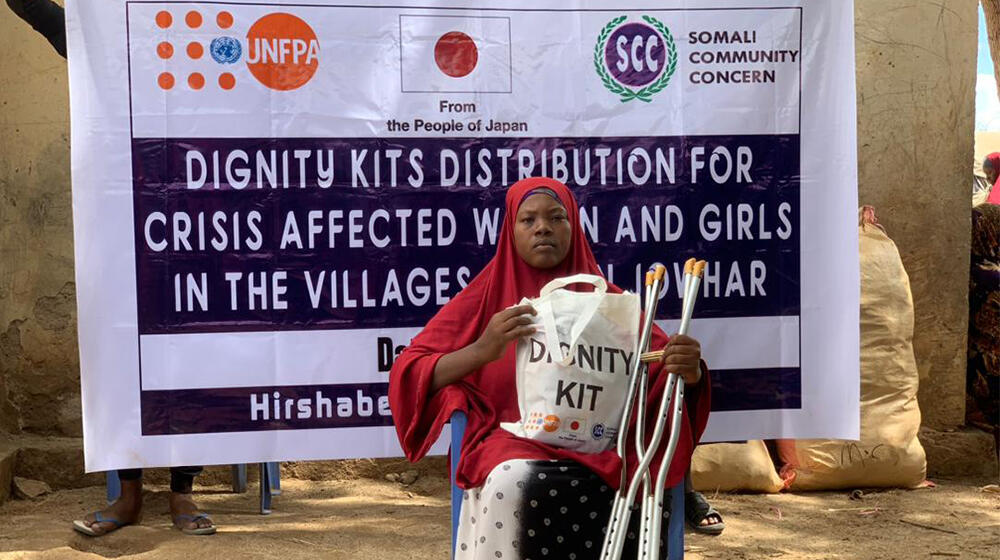In 2023, through the 'Enhancing Access to GBV Specialized Services and Prevention Information in Drought-impacted Locations in Somalia Project' supported by the Government of Japan, UNFPA reached 14,836 women and girls with lifesaving and integrated GBV (Gender-Based Violence) and SRH (Sexual and Reproductive Health) services across various districts in Somalia, including the Jowhar district. Among these women is Maka, a 38-year-old disabled and widowed woman from Timire Village in Jowhar District. Maka, who has six children and cannot move without physical aid due to her impaired legs, faces significant challenges, including social discrimination and limited access to basic services.
In her community, women and girls with disabilities are at higher risk of gender-based violence, sexual abuse, neglect, maltreatment, and exploitation. With the help of UNFPA GBV caseworkers, Maka learned about UNFPA-supported Women and Girls' Spaces and the available services. She attended GBV awareness sessions and group psychosocial support in safe spaces and received a dignity kit, which allowed her to move freely and feel safe and confident.
Before these sessions, Maka was unaware of the many forms of GBV existing in her community and had planned to arrange a marriage for her 15-year-old daughter during a crisis. However, after understanding the negative impact of child marriage on her daughter's health and social life, she changed her mind.
Maka expressed her gratitude to UNFPA for providing essential knowledge about GBV's causes, consequences, and prevention mechanisms. She now feels equal to other able-bodied women and is empowered through the equal opportunity and access to safe space services established by UNFPA. Motivated and happy, she now supports other women like herself in ending GBV in her community.
Maka's story exemplifies the profound impact that UNFPA's work, with the support of the government of Japan, is having on the lives of women and girls in Somalia. By providing critical services and education, UNFPA is helping women like Maka overcome adversity, gain confidence, and become advocates for change in their communities.


